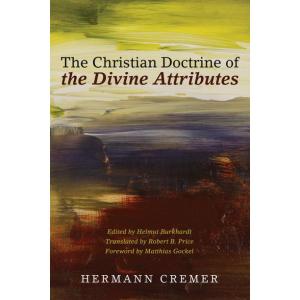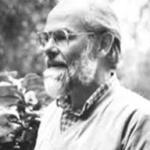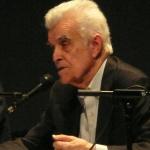The Christian Doctrine of the Divine Attributes 2
For those of you reading this book with me, I will next, in about a week, take up Chapter 3 “First Series: Divine Attributes Disclosed in Revelation,” Part 1 “The Holiness of God.” (Part 2 is very long, so I want to take it up by itself after Part 1.)
I am again astounded at how much Cremer’s view of God parallels, foreshadows, Karl Barth’s and Emil Brunner’s. I simply have to believe he influenced them.
I often recommend that my students jump to the last two or three paragraphs of a chapter, read those, and then go back and read the whole chapter in their light. I think that would help with this book.
On page 18 Cremer says “The question is therefore whether…we ought to derive [the divine attributes] from the concept of God.” Before that on the same page he asserts that “We are therefore well advised to confine ourselves to revelation in our ‘derivation’ of the divine attributes, so that we draw our assertions concerning the character of God’s action exclusively from this action itself.”
That is the point of the whole chapter and maybe the whole book!
In this chapter Cremer begins by ruling out any approach to the divine attributes by way of the “vias,” especially the ways of Dionysius the Pseudo-Areopagite. I couldn’t agree more. He says “To tread the path of the Areopagus would thus be to turn aside from the Christian knowledge of God.” (11) Why? Because this method begins with our finite ideas, not God’s actual conduct. “We know God through his actual conduct, through his revelation, through his action for us and toward us, through the redemption that he offers us.” (11)
Cremer continues by arguing that in and for God there is no conflict between love and necessity although he strongly denies that God’s love for us is necessary. He simply rejects the old dilemma posed by logicians. Here is a quote from page 12 that pre-echoes Barth: “Faith includes the inalienable certainty that God has no need of us. Even though God’s entire, innermost being is eternally directed toward us, and even though we should never think of him otherwise than as existing entirely and eternally for us, it is nevertheless utterly by his own freedom—a freedom that is not mediated to him…and certainly not extorted from him through any necessity of reason or nature—that he desires to be for us and that we should therefore exist, so that love might have its object.”
That is a typical German sentence! But it bears re-reading. Cremer is arguing exactly what Barth later argued, that God’s love for us is his choice but it is an eternal choice and not at all arbitrary. “God is the one who loves in freedom” (Barth).
Then Cremer argues that we should not give in to “consistency.” He embraces paradox. “God’s revelation in Christ, the revelation of redemption, cannot understood as a matter of consistency.” (15) “Not even human love can be viewed from the perspective of consistency.” (15)
Then Cremer attacks “the viewpoint of the perfection of human development.” (17) I take it Cremer is contradicting Hegel and his followers who believed that human history is developing toward perfection and that God is somehow revealed in that development and is himself developing in it. Cremer does not quote or refer to Kierkegaard, but surely he agrees with Kierkegaard who pre-dated him. I don’t know if he even knew of the Danish philosopher-theologian.
Cremer ends up saying something Kierkegaard would heartily agree with: “God’s revelation remains in every respect the opposite of all rational and moral consistency. It is the revelation of the one who is never coerced by human sin into merely consistent action.” (17)
I am always bothered when theologians argue for inconsistency in theology. It seems like a form os “special pleading.” How can we expect inquiring minds to enter into what we are preaching and teaching if we abandon logic? I do not think God’s revelation is illogical except to the shallow mind that refuses to recognize and embrace its “inner logic” (as T. F. Torrance called it).
But I couldn’t agree more that Christian theology must not begin with natural knowledge of God, the idea of God, or the world and work up to God from there. For example, Cremer mentions the attribute of God’s omnipotence. IF we begin with logic and the idea of “God” as “the being greater than which none can be conceived” (Anselm and Descartes), then we will end up with God’s potentia absoluta in which God can do anything including evil. Or we have to place God “above good and evil” (Nietzsche).
I would prefer to say that since God is love, since love is God’s essence, once God created us in his own image and likeness, he had to love us and has to love us. Love cannot be a choice if love is one’s essence. I appreciate the emphasis on God’s freedom, but I think it is misplaced. God’s freedom means that he does not have to save us. His love is, as Brunner insisted, “holy love.” Jesus’s parable of the prodigal son sheds light on this. Jesus did not say that the father had to go out in search of his wayward son and bring him home against his will. However, once his son came home, repentant, the father had to love him. At least that seems implicit in Jesus’s story. And it is necessary, logically, if we say love is God’s essence.
*Note: If you choose to comment, make sure your comment is relatively brief (no more than 100 words), on topic, addressed to me, civil and respectful (not hostile or argumentative), and devoid of pictures of link. If you have not read this chapter, do not comment. You may, however, ask a question.*














